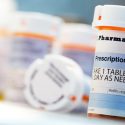Partnering to prevent overdose: UPMC Health Plan strategies to combat the opioid epidemic

The national opioid epidemic hit the state of Pennsylvania particularly hard. As part of UPMC, an integrated delivery and finance system, UPMC Health Plan is uniquely positioned to improve health outcomes by leveraging its access to data, research, clinical expertise, closely with academic institutions, medical providers, county and state governments, and community organizations to create and enhance holistic care strategies and programs tailored to individuals dealing with opioid use disorder (OUD).
We continue to see COVID-19’s impact on behavioral health, with increases in anxiety, depression, suicidal thoughts, and substance use over the past several months [1]. Growing concern for continued social isolation and the use of alcohol or other drugs to help cope with the stress and fear brought on by the pandemic requires a comprehensive healthcare approach.
The COVID-19 pandemic has required an adjustment of treatment and recovery procedures to ensure public health. However, the pandemic has not impacted UPMC Health Plan’s commitment or ability to help our members with substance use challenges and their families in the communities we serve.
Our efforts engage providers and individuals in the following four areas:
- Safe opioid prescribing and use, including alternatives to opioids for pain management. We arm providers with up-to-date, actionable information as well as general education about OUD prevention and treatment. We support our providers in their use of safe prescription practices for narcotics and to increase the utilization of alternative approaches to pain, such as cognitive behavioral therapy and physical therapy. These efforts also help providers identify individuals at risk for OUD, engage them, and refer them to treatment.
- Expanding treatment options, including supporting the distribution of naloxone. There are many paths to recovery. Knowing they have access to many types of treatment, including medications, is often an important first step for many people in their journey to recovery. UPMC Health Plan supports the expansion of access to treatment for patients, and we cover treatment for medication assisted treatment, including medications such as buprenorphine and naltrexone, a crucial component in the treatment of OUD. We also partner with local and state governments to advance nationwide efforts to expand access to treatment. For example, the UPMC Center for High-Value Health Care is facilitating the implementation two grants aimed at expanding and enhancing access to medication for the treatment of OUD, in combination with counseling and behavioral therapies.
- Improving the identification and referral to treatment of members at high-risk for opioid use disorder or overdose. Identifying individuals who are experiencing substance use disorder and helping them find treatment is a top priority. Our providers use assessments and screening tools to identify individuals at risk for substance use disorders, which is supplemented by health plan resources including direct outreach regarding education, contacts, and resources. Additionally, we support certified peer recovery specialists who engage individuals in emergency departments, either for an opioid-related event or who are at high-risk of an overdose, to connect them with local, clinical resources. This ensures that patients receive the care they need with the goal of increasing the number of individuals in recovery.
- Enhancing care coordination for substance use disorder services and treatments. Mental health problems and substance use disorders sometimes occur together, so it is crucial that treatment plans are holistic and treat both conditions. UPMC Health Plan champions and facilitates this approach in several ways: streamlined member services coordination via a single phone number, “cross-over” referrals from physical health to behavioral health providers, and the certification of several UPMC facilities as Centers of Excellence, which are designated medical homes for individuals with OUD covered by Medical Assistance. In response to the shifting landscape created by COVID-19, UPMC created a Medical Toxicology Telemedicine Bridge to swiftly assess substance use disorder patients via telemedicine and bridge them to local treatment providers.
These initiatives, as well as many other programs and services, have led to significant reductions in opioid prescribing and increases in the number of our members in treatment over several years. UPMC’s opioid medication utilization numbers are below national benchmarks. Every year, more patients are screened and referred for treatment of their opioid or other substance use disorder.
Beyond specific clinical initiatives, UPMC Health Plan supports local organizations that work tirelessly to address the epidemic; for example, Club Serenity in Charleroi, which serves adults addicted to opioids, and the renovation of Gateway Rehab’s facility, Abe’s Place.
There is no magic solution for the opioid epidemic. The solution is sustained research, investment, collaboration, and innovative clinical care. UPMC Health Plan is committed to the creation and enhancement of strategies, initiatives, and programs based on science and research. We believe this dedication will support the recovery of individuals with OUDs and other substance use disorders.
The combination of our community partnerships, medical expertise, and physical and behavioral health resources will help us continue to empower individuals in need as they begin their journey toward a happy, healthy life.
[1] Center for Disease Control and Prevention, 2020



